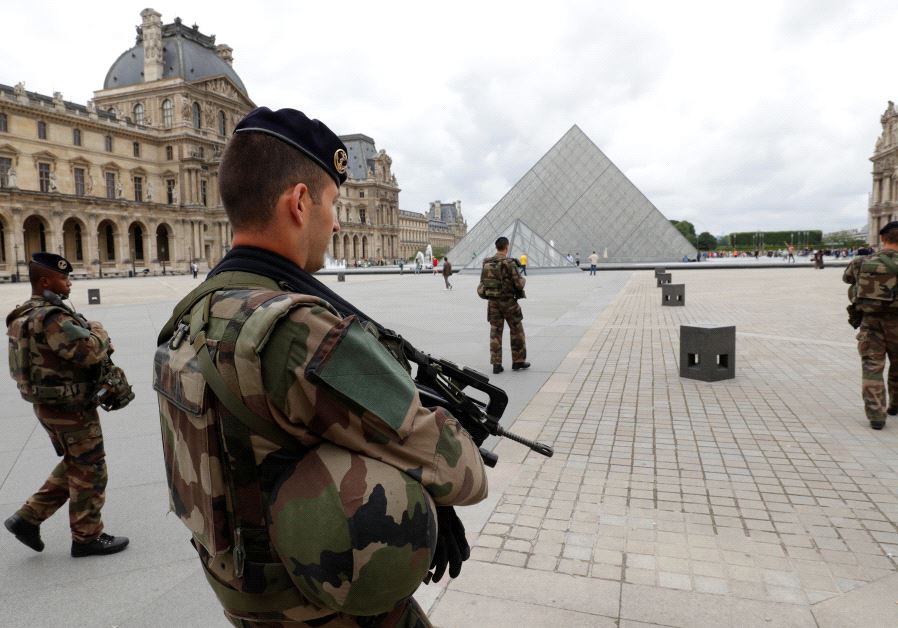Israeli intel takes global approach, helps thwart dozens of terror attacks
The November 2015 Paris attacks marked as the day defense establishment changed its perspective.
 French army soldiers patrol near the Louvre Museum Pyramid's main entrance in Paris, FranceUpdated:
French army soldiers patrol near the Louvre Museum Pyramid's main entrance in Paris, FranceUpdated: